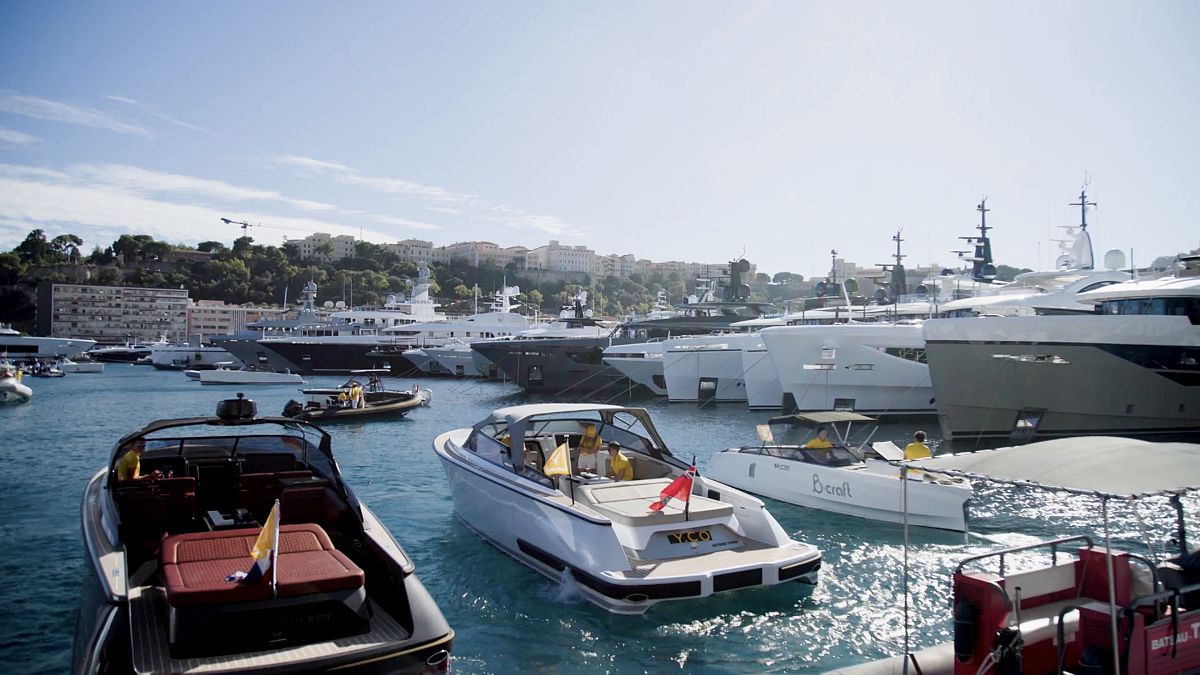The far right is already part of the European mainstream

The opinions expressed in this article are those of the author and do not represent in any way the editorial position of Euronews.
The far right is not ascendant in the sense that it is banging on the door. It is already in the room and occupying part of the furniture, Tom Junes writes.
In late November, Geert Wilders and his far-right PVV’s victory in the snap Dutch general elections seemingly stunned political observers across the media spectrum.
Analysts were quick to point out how the success of the far right was the result of “mainstreaming” by predominantly centre-right parties who tended to take over the far-right’s rhetoric and programmatic talking points on immigration.
And while Wilders’ result of 23.5% of the vote in a very fragmented partyscape was arguably a political “earthquake” in the Netherlands, dire statements about the far right’s ascendancy in Europe and pessimistic predictions about the upcoming European elections followed.
You win some, you lose some
It seemed quickly forgotten that just a month earlier in October, in Poland — a country with more than double the population of the Netherlands — a broad alliance of opposition parties managed to trounce the competing radical and far-right parties in an ugly and heavily contested election signalling the likely end of eight years of illiberal rule under Law and Justice (PiS).
Also in October, the far right underperformed in local elections in Bulgaria, a country where various far-right parties (ATAKA, NFSB, VMRO) had been junior governing partners or offered necessary silent support to minority governments for most of the past decade and a half.
Admittedly, neither Poland nor Bulgaria, owing to their post-communist transitions after 1989, have any traditional centre-right parties of the western European kind such as Christian-democratic or liberal parties that would have mainstreamed a generic far-right.
Nor is opposing immigration an exclusive talking point of the far right or centre-right in Central and Eastern Europe, as the nominally left-wing and populist SMER of Robert Fico in Slovakia proves.
Despite the claims of far-right ascendancy, populist, radical right and far-right parties have effectively been “mainstream” and part of the political status quo across Central and Eastern Europe for quite some time.
Poland’s PiS has been the requisite half of a political “duopoly” in the country since 2005, and Victor Orban’s Fidesz has ruled Hungary with a supermajority since 2010.
Slovakia’s SMER has governed for most of the past two decades, while Bulgaria’s far-right has exhibited a dynamic pluralism and series of metamorphoses in the past two decades with its current incarnation representing the third largest parliamentary force.
Seen as the “poorer periphery of the EU”, Central and Eastern Europe often fails to fit political models that are tailored to fit western European realities. But the latter has an enduring far-right phenomenon that goes back nearly a generation as well.
The West is not immune to an enduring far-right presence
Italy, the third-largest EU member state by population, is currently governed by a far-right party, Georgia Meloni’s Fratelli d’Italia, or Brothers of Italy.
And though Meloni is the country’s first far-right PM since Benito Mussolini, her party — like Matteo Salvini’s Lega or League — is part of a right-wing bloc that has governed Italy on and off since Silvio Berlusconi’s rise back in the 1990s.
If it would not be ironic to talk about ascendancy while noting that Geert Wilders is at present the Netherlands’ longest-serving MP, the breakthrough of the Dutch far right can be traced to the general elections of 2002 with the emergence and immediate government participation of the Lijst Pim Fortuyn.
The Dutch far right’s story is overshadowed by the neighbouring Flemish far right’s trajectory in Belgium following the first so-called “Black Sunday” in 1991 with governmental participation prevented by a three-decade-old cordon sanitaire against Vlaams Belang (formerly Vlaams Blok).
This was not the case in Austria, where the FPÖ under Jörg Haider managed to enter government in 2000 triggering widespread dismay and outcry about the rise of the extreme right.
Conflicting interests means far-right would struggle to unite
More recently, far-right parties have seen breakthroughs in several countries and entered government in Finland and Sweden, but perhaps the most mediatised case has been France with Marine Le Pen’s consecutive presidential run-off defeats to Emmanuel Macron.
Yet, Le Pen’s presidential campaigns built on her father’s surprise performance back in 2002 which — though ultimately providing incumbent president Jacques Chirac with a Belarusian-style vote share — already signalled the incipient rise of the French far right.
In the end, far-right parties’ influence has grown over the past two decades as “mainstream” parties increasingly emulated their agenda while their own performance in turn has made far-right parties now become one of several “acceptable” options for voters in many countries.
Does this mean that some broad international far-right alliance is possible in Europe? In theory, perhaps. In practice, this would be rather unlikely since far-right parties tend to have more conflicting interests than what could unite them beyond opposing immigration.
In addition, European elections tend to produce different results than national elections.
At the moment, there are two groups that bring together radical right and far-right parties (ID and ECR) in the European Parliament. Yet, more than half of their MEPs actually come from only three countries: Poland, France, and Italy.
More so, Wilders doesn’t even have a single MEP, while Meloni’s European policies have been so mainstream that she could more probably lead her party into the EPP rather than join some large yet-to-materialise anti-establishment far-right alliance.
The far right is already sitting on your sofa
Does this mean that the far right has no clout? On the contrary, it does, but exactly because it is already part of the mainstream in many countries and able to exert a profound influence on the policies of other parties.
The far right is not ascendant in the sense that it is banging on the door. It is already in the room and occupying part of the furniture which requires a change in thinking, meaning, how to deal with a far-right that is not going away in the short run.
And it should also tell those who wish to oppose the far right that these parties’ success and the fact that they are now deemed salonfähig is due to the existence of a large percentage of people who endorse racist, homophobic, sexist, anti-Semitic, Islamophobe, illiberal and authoritarian views.
Perhaps that is something more profound to reflect upon when we think about Europe’s political future.
Tom Junes is a historian and Assistant Professor at the Institute of Political Studies of the Polish Academy of Sciences. He is the author of “Student Politics in Communist Poland: Generations of Consent and Dissent”.
At Euronews, we believe all views matter. Contact us at [email protected] to send pitches or submissions and be part of the conversation.
Source: Euro News















